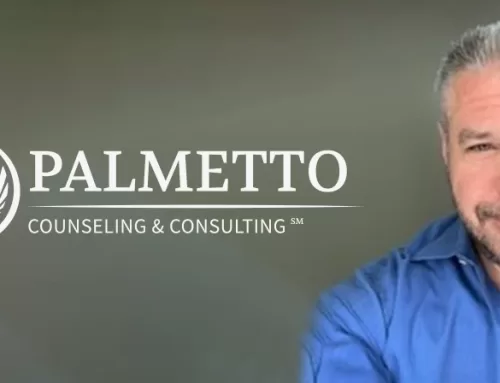Special to Palmetto Counseling’s Blog | June 28, 2018 9:34 AM EDT
This issue features an article by Brad Krause
Our daily lives are stressful, and sometimes that boils over into unhealthy habits or negative thinking patterns. For people who struggle with mental illness or addiction, self-care can be hard to implement. Here are some tips to show you how.
Give Yourself Every Opportunity To Excel
We can’t be our best, if our needs aren’t being met. Make sure you’re getting enough rest. Your sleep should be sacred. Create a nighttime ritual such as a warm bath and an hour with a good book before bed. Whatever happens, don’t let anything deprive you of this wind-down time and the good night’s sleep that follows it.
Focus on eating regular meals that provide you the energy resources you need each day. If you skimp on meals, you’ll make yourself irritable and unhealthy. You deserve to be well-cared for and that includes being well fed with tasty, healthful food.
Lastly, make sure you’re getting enough exercise. Find an activity you love and give yourself the time to pursue it, at least three times a week. Don’t punish yourself with exercise you don’t enjoy. Think of your workout as playtime — a reward for all your hard work. Choose something that makes you feel happy and you look forward to. Exercise is about moving every part of your body and that can actually be extremely satisfying. It can produce a natural high that overwhelms any chemical one. Dance, swim, hike in the woods or take up spelunking — just make sure you’re actively moving on a regular basis, doing something you enjoy.
Make Yourself Feel Safer
Anxiety, fear, and worry feed into depression, self-doubt and loss of self-esteem. Bolster your sense of safety. Can you separate yourself from negative influences or people? For survivors of substance abuse disorders, this may mean avoiding people and places where they might be tempted to use again. If avoidance is not feasible or desirable, look for ways to make you feel more in control of your environment. If you’re in recovery, one way to take care of your mental health is to pick up a new hobby or start practicing meditation and yoga.
If you worry about your health, take a proactive stance and improve your diet and exercise program. If you are afraid of the future, journal about worst-case scenarios. Putting a name to what frightens you helps to take the mystique away.
If you’re anxious about money, make a budget and list your debts from smallest to largest, and then work at paying them off in that order. Each debt you pay off creates a greater sense of control and order in your life.
If you worry about your physical safety, take a self-defense course or purchase a home security system.
Learn to Self-Soothe
Learning to regulate your emotional responses can help you to de-escalate emotional triggers in your life. We’ve all been there: the encounter you dreaded, with a person who hurt you, or a situation where you failed before. Meditation and relaxation techniques can give you tools to self-regulate when the inevitable occurs. The next time you’re in a triggering situation, try this: Mentally disengage from the situation and bring your attention to the area of your heart. Recall a moment when you felt happiness, and love, or just visualize such a feeling. What does it look like in your mind? Keeping your attention on your heartbeat and your breathing, re-experience those emotions in your memory.
Take The Pressure Off
It’s very common for people to overcommit themselves out of a sense of social duty or professional obligation, so learn to say, “no.” It’s OK to admit when there’s too much on your plate and you can’t handle anything else. Unless you’re Wonder Woman, you really can’t do it all.
Most of the time, people will understand. Odds are, they’re overcommitted, too. Practice graceful ways of declining. “I’m just so busy at the moment, maybe another time?” Or, the soft turn down: “That sounds lovely – can I get back to you?” That way, you can think on it and decide if you really want to do it, or just feel obligated.
Self-care is important to your physical and mental health, but it need not be challenging. At its heart, it’s really about prioritizing yourself in your own life. You can’t take care of other people if you’re not taking care of yourself.
About the author
Brad Krause graduated from college in 2010 and went straight to the corporate world at the headquarters of a popular retail company. But what started as a dream job soured quickly. After four years of working 15-hour days and neglecting his health, he decided enough was enough. Through aiding a friend during a tough time, Brad discovered his real calling-helping people implement self-care practices that improve their overall wellbeing. He created SelfCaring.info to share his own knowledge and the many great resources he finds on his self-care journey.
Do you have an article on mental health, addiction, substance abuse, mental health advocacy or another important topic you would like to submit?
Let us know if you would like to be featured as a Special Guest Contributor to PCC’s Blog by contacting us at info@pccrh.com




